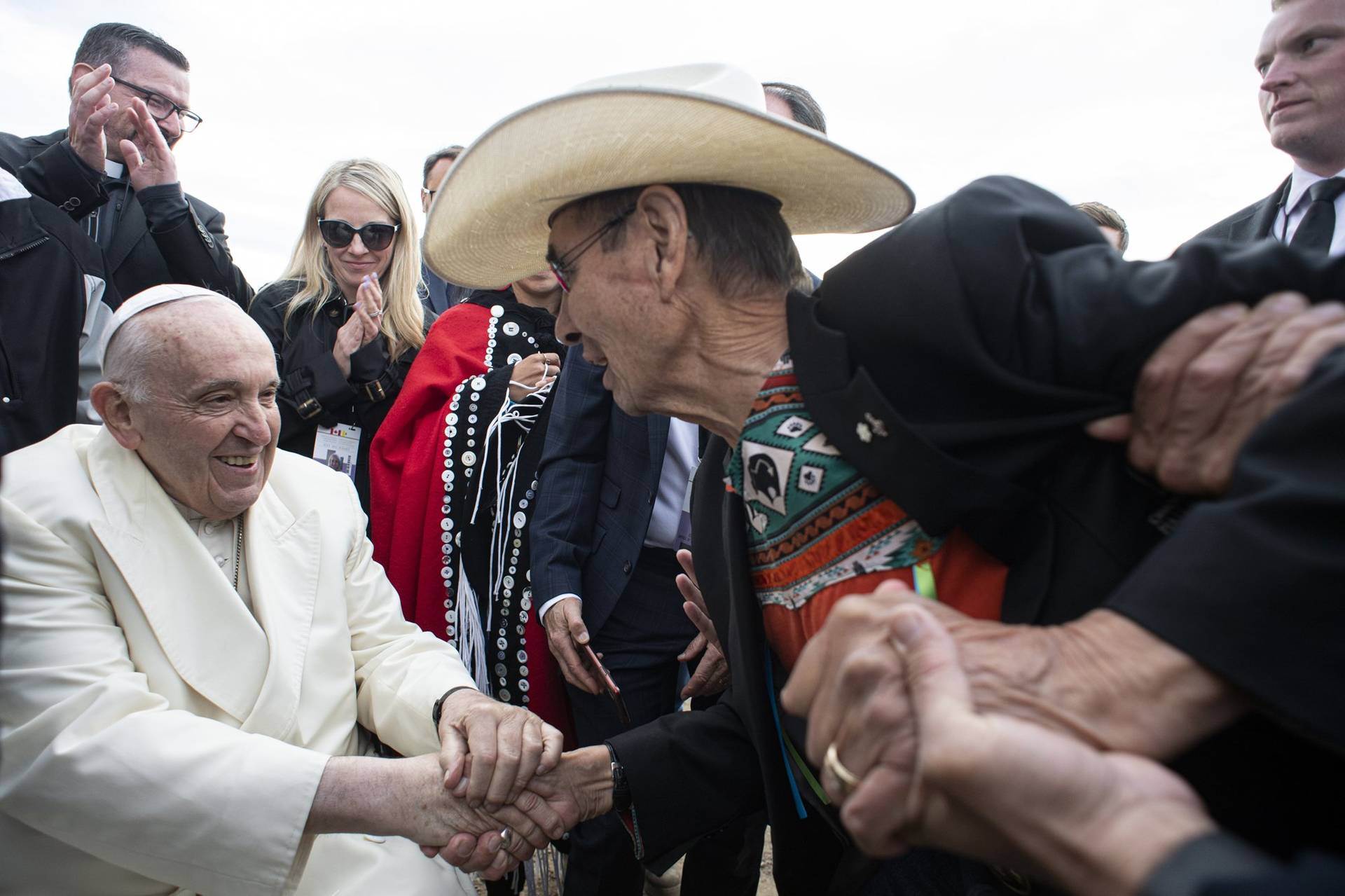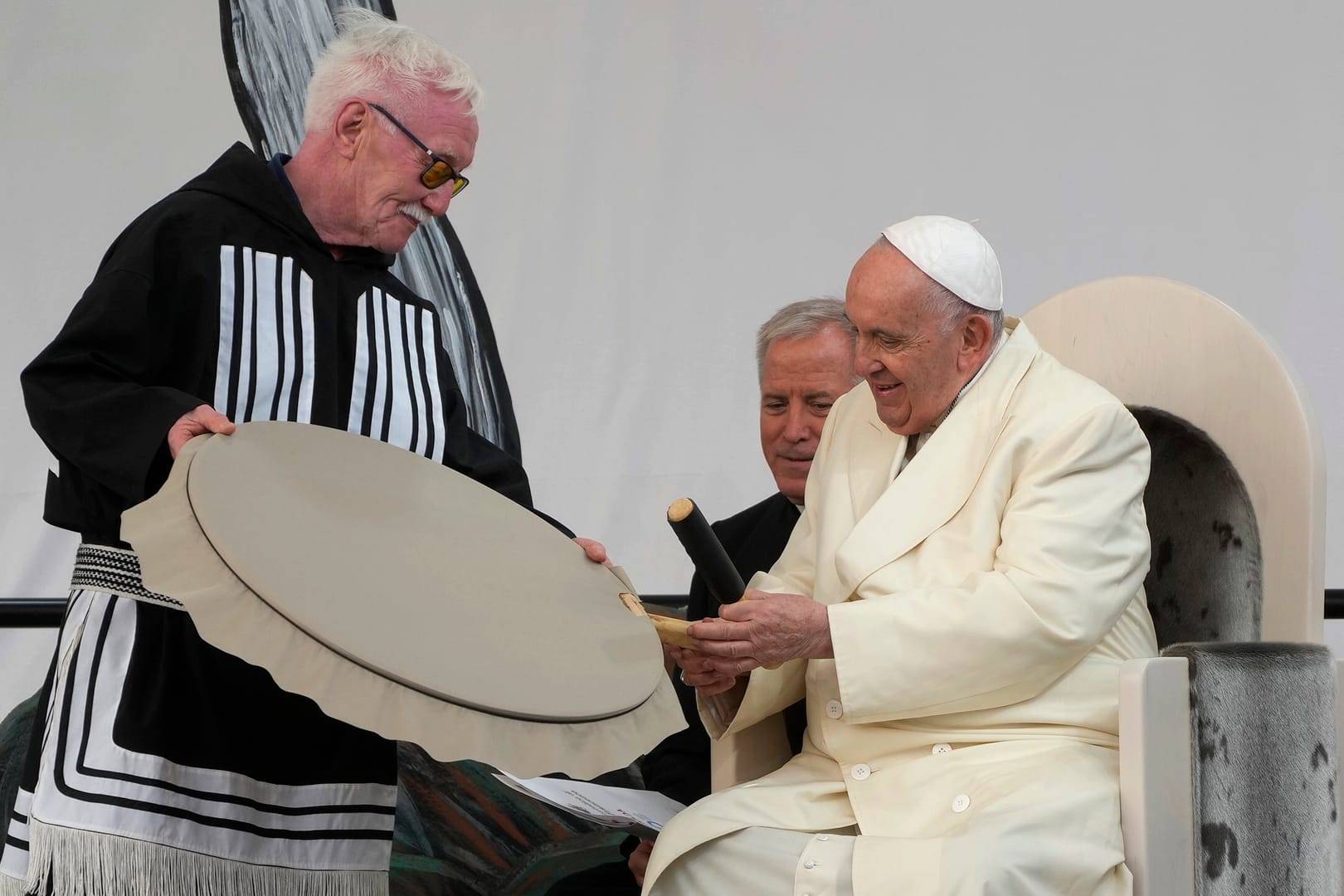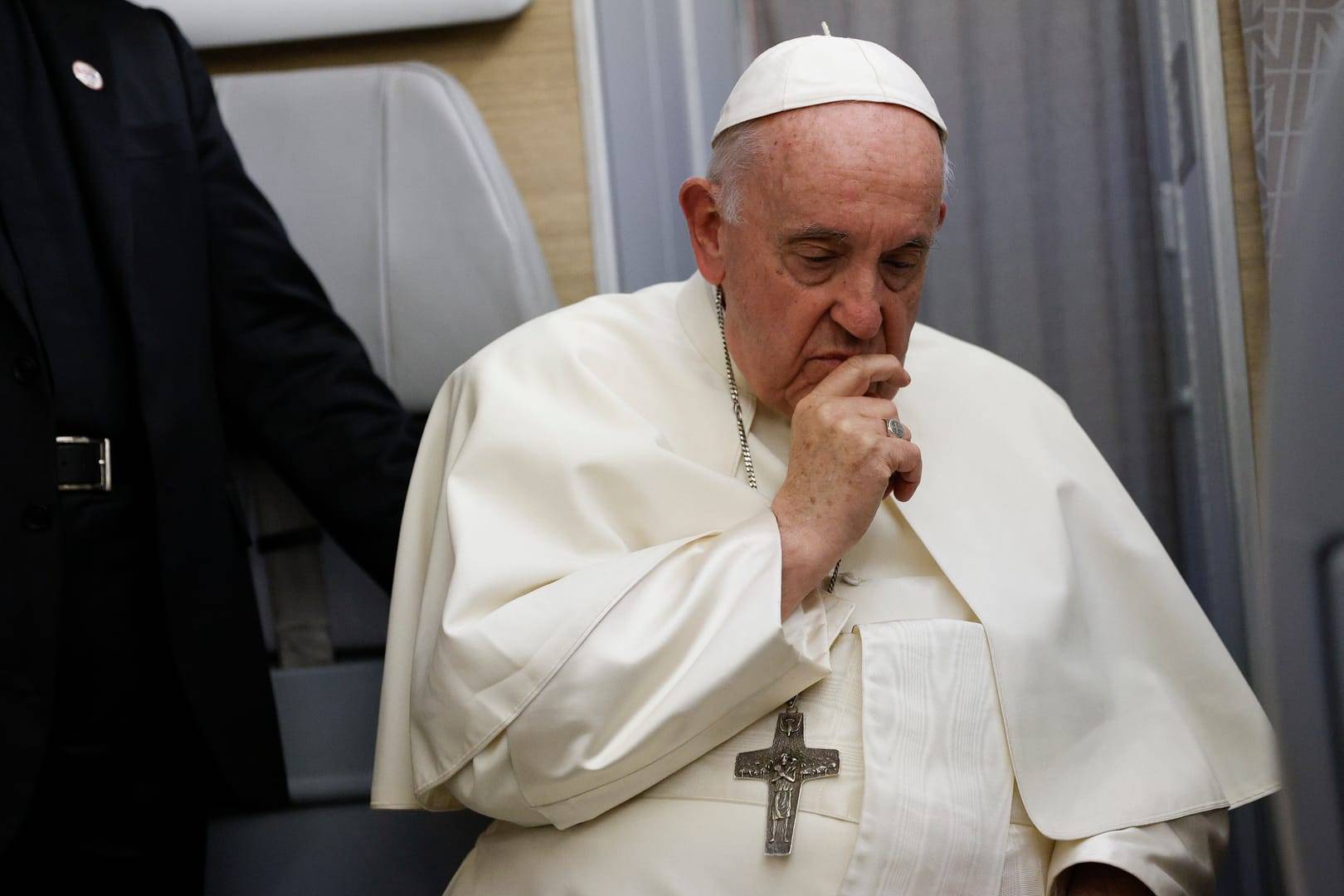ROME – Pope Francis, on his last day in Quebec, told a delegation of Indigenous people that his time with them has left a deep impression, and he praised the role that some highly-venerated women saints have played in the process of healing and reconciliation.
Speaking to the delegation at the archbishop’s residence in Quebec, where he was staying during his visit to the city, the pope said women “best understand how to protect the most important things in life,” and pointed to three female saints who are especially beloved among Indigenous communities.
These women, he said, are Saint Anne, the grandmother of Jesus, the Blessed Virgin Mary herself, and Saint Kateri Tekakwitha, the first Native American saint from the territories of what would become the United States and Canada.
Pope Francis has made reference to St. Anne throughout his time in Canada, which will conclude later this evening after a stop in the remote city of Iqaluit, where he is scheduled to meet with survivors of Canada’s residential schools.
On Tuesday, he delivered a homily during Mass celebrated at Commonwealth Stadium in Edmonton, on the feast of St. Anne, in which he praised the role of grandparents and the elderly in both preserving history and passing on faith and wisdom to new generations.
Later that day, he led a prayer service at the Lac Ste. Anne, one of North America’s most popular pilgrimage sites, which is especially dear to Indigenous Christians and is considered by the pilgrims who journey there annually to be a place of healing.
RELATED: Pope delivers ode to grandparents on day two in Canada
Pope Francis in his remarks Friday praised St. Anne’s “tenderness and protection,” and he highlighted the Virgin Mary as a pilgrim who is constantly “treading the path between heaven and earth, in order to show us God’s care and to lead us by the hand to her son.”
Pointing to Saint Kateri, he praised her “exemplary devotion to prayer and work, and her ability to endure many trials with patience and meekness.”
These traits, he said, “were also made possible by certain noble and virtuous traits inherited from her community and the Indigenous environment in which she grew up.”
Widely venerated as a patroness of ecology, Saint Kateri was born in Auriesville, New York in 1656, to a Christian Algonquin woman and a pagan Mohawk chief, both of whom died during a smallpox outbreak in their village when Kateri was still a young child.
Kateri, who suffered facial scarring and impaired eyesight as a result of her own bout with smallpox, was adopted by an uncle, who planned an arranged marriage while she was still quite young.
However, when a small group of Jesuits visited her tribe in 1667, they told her about Christ, and although she was not baptized, she embraced Christianity.
Despite facing opposition and ridicule from her tribe for her conversion and for rejecting her arranged marriage, Kateri maintained her faith and was baptized at the age of 18 by a Jesuit missionary who returned to her tribe.
She later left her village and lived an austere life of prayer, performing acts of penance and charity. She gained a reputation for holiness and was rumored to have performed miracles while she was still alive.
Kateri died in 1680 at the age of 24 and is buried at the St. Francis Xavier Mission Catholic Church in Kahnawake, near Montreal. She was beatified by Pope John Paul II in 1980 and was canonized by Pope Benedict XVI on October 21, 2012.
Referring to all three women, Pope Francis said they “can help us to come together, and start to weave anew a reconciliation that can uphold the rights of the most vulnerable in our midst and look at history without resentment or forgetfulness.”
Kateri and the Virgin Mary, in particular “received from God a plan for their lives, and, without asking any man, courageously assented to it,” he said.
“Those two women could have responded irately to anyone who opposed that plan, or simply submitted to the patriarchal rules of the time and given up, without battling for the dreams that God himself had inspired in them,” he said.
However, instead, “with meekness and determination, with prophetic words and decisive gestures, they blazed a trail and accomplished what they had been called to do.”
“May they bless the journey we now share, and intercede for us and for this great work of healing and reconciliation that is so pleasing to God,” the pope said, and asked for prayer as he wrapped up his trip to Canada and prepared to return to Rome.
Pope Francis spoke on his last day in Canada after arriving Sunday on a pilgrimage of healing and reconciliation for the church’s role in the country’s residential school system.
As part of a government-conceived assimilation plan, from 1870 to 1996, around 150,000 children were forcibly removed from their families and sent to schools, many of which were run by Catholic missionary orders and other Christian churches, where they were often beaten for speaking their native languages, and where many endured various forms of physical, psychological, sexual, and spiritual abuse.
Pope Francis issued a historic apology for the Catholic Church’s role, in what survivors have termed a “cultural genocide,” on Monday, and on Thursday he apologized specifically for the sexual abuse of children at church-run schools.
In his remarks Friday morning, the pope said he came to Canada in “a spirit of penance, to express my heartfelt pain at the wrong inflicted on you by not a few Catholics who supported oppressive and unjust policies in your regard.
He voiced hope that progress would be made “in the search for truth, so that the processes of healing and reconciliation may continue, and so that seeds of hope can keep being sown for future generations – Indigenous and non-Indigenous alike – who desire to live together, in harmony, as brothers and sisters.”
Francis said his meetings with Indigenous individuals and communities “have left a mark on me,” and that “while I came to be with you, it was your life and experiences, the Indigenous realities of these lands, that have touched me, remained with me, and will always be a part of me.”
“I dare say, if you will allow me, that now, in a certain sense, I also feel a part of your family, and for this, I am honored,” he said.
Follow Elise Ann Allen on Twitter: @eliseannallen














